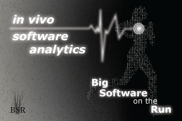BSR Winter school organized by TU/e, TUDelft and UTwente
Speakers
The BSR winter school brings together best experts of the field from Europe, US and Canada. We are pleased to announce the following confirmed speakers. The list will be updated as more speakers confirm.
Margaret-Anne Storey, University of Victoria, British Columbia
 Dr. Margaret-Anne Storey is a Professor of Computer Science at the University of Victoria, a Canada Research Chair in Human and Social Aspects of Software Engineering, and a Principal Investigator for the Canadian Centre for Software Engineering Research (CSER). Her research goal is to understand how technology can help people explore, understand and share complex information and knowledge. She evaluates and applies techniques from knowledge engineering, social software and visual interface design to applications such as collaborative software development, program comprehension, biomedical ontology development, and learning in Web-based environments. Some of her past projects include investigating the role of social media in collaborative software engineering, improving information visualization techniques and developing social software to facilitate the next version of the International Classification of Diseases with the World Health Organization. Dr. Storey recently wrapped up a 10-year project as a Principal Investigator for the National Center for Biomedical Ontology with the National Institutes of Health in the United States.
Dr. Margaret-Anne Storey is a Professor of Computer Science at the University of Victoria, a Canada Research Chair in Human and Social Aspects of Software Engineering, and a Principal Investigator for the Canadian Centre for Software Engineering Research (CSER). Her research goal is to understand how technology can help people explore, understand and share complex information and knowledge. She evaluates and applies techniques from knowledge engineering, social software and visual interface design to applications such as collaborative software development, program comprehension, biomedical ontology development, and learning in Web-based environments. Some of her past projects include investigating the role of social media in collaborative software engineering, improving information visualization techniques and developing social software to facilitate the next version of the International Classification of Diseases with the World Health Organization. Dr. Storey recently wrapped up a 10-year project as a Principal Investigator for the National Center for Biomedical Ontology with the National Institutes of Health in the United States.
Robert DeLine, Microsoft research, USA
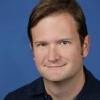 Dr. Robert DeLine is a principal researcher at Microsoft Research, working at the intersection of software engineering and human-computer interaction. His research group designs development tools in a user-centered fashion: they conduct studies of development teams to understand their work practice and prototype tools to improve that practice. Dr. DeLine has a background in both HCI and software engineering. His master's thesis was the first version of the Alice programming environment (University of Virginia, 1993), and his PhD was in software architecture (Carnegie Mellon University, 1999).
Dr. Robert DeLine is a principal researcher at Microsoft Research, working at the intersection of software engineering and human-computer interaction. His research group designs development tools in a user-centered fashion: they conduct studies of development teams to understand their work practice and prototype tools to improve that practice. Dr. DeLine has a background in both HCI and software engineering. His master's thesis was the first version of the Alice programming environment (University of Virginia, 1993), and his PhD was in software architecture (Carnegie Mellon University, 1999).
Bram Adams, Polytechnique Montreal, Canada
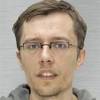 Dr. Bram Adams is an assistant professor at the École Polytechnique de Montréal, where he heads the MCIS lab on Maintenance, Construction and Intelligence of Software. He obtained his PhD at Ghent University (Belgium), and was a postdoctoral fellow at Queen's University (Canada) from October 2008 to December 2011. His research interests include software release engineering in general, and software integration, software build systems, software modularity and software maintenance in particular. His work has been published at premier venues like ICSE, FSE, ASE, ESEM, MSR and ICSM, as well as in major journals like EMSE, JSS and SCP.
Dr. Bram Adams is an assistant professor at the École Polytechnique de Montréal, where he heads the MCIS lab on Maintenance, Construction and Intelligence of Software. He obtained his PhD at Ghent University (Belgium), and was a postdoctoral fellow at Queen's University (Canada) from October 2008 to December 2011. His research interests include software release engineering in general, and software integration, software build systems, software modularity and software maintenance in particular. His work has been published at premier venues like ICSE, FSE, ASE, ESEM, MSR and ICSM, as well as in major journals like EMSE, JSS and SCP.
Georgios Gousios , Delft University of Technology, the Netherlands
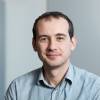 Dr. Georgios Gousios is an assistant professor at the Web Information Systems group, Delft University of Technology. His research interests include software engineering, software analytics and programming languages. He works in the fields of distributed software development processes, software quality, software testing, developer productivity assessment, research infrastructures and software security. His research has been published in top venues (ICSE, FSE, EMSE, MSR) where he has received 4 best paper awards. In total, he has published more that 50 papers and also co-edited the ``Beautiful Architectures'' book (OReilly, 2009). He is the main author of the GHTorrent data collection and curration framework and the Alitheia Core repository mining platform. Dr. Gousios holds a PhD in Empirical Software Engineering (mining software repositories) with distinction from the Athens University of Economics and Business (AUEB) and an MSc (software engineering) with distinction from the University of Manchester.
Dr. Georgios Gousios is an assistant professor at the Web Information Systems group, Delft University of Technology. His research interests include software engineering, software analytics and programming languages. He works in the fields of distributed software development processes, software quality, software testing, developer productivity assessment, research infrastructures and software security. His research has been published in top venues (ICSE, FSE, EMSE, MSR) where he has received 4 best paper awards. In total, he has published more that 50 papers and also co-edited the ``Beautiful Architectures'' book (OReilly, 2009). He is the main author of the GHTorrent data collection and curration framework and the Alitheia Core repository mining platform. Dr. Gousios holds a PhD in Empirical Software Engineering (mining software repositories) with distinction from the Athens University of Economics and Business (AUEB) and an MSc (software engineering) with distinction from the University of Manchester.
Frits Vaandrager, Radboud University, the Netherlands
 Prof. Frits Vaandrager is a full professor of Informatics for Technical Applications, Institute for Computing and Information Sciences. He has a strong interest in the development and application of theory, (formal) methods and tools for the specification and analysis of computer based systems. In particular, he is interested in real-time embedded systems, distributed algorithms and protocols. Together with Lynch, Segala,
and Kaynar he developed the (timed, probabilistic and hybrid) input/output automata formalisms, which are basic mathematical frameworks to support description and analysis of computing systems. He has been and is involved
in a large number of projects in which formal verification and model checking technology is applied to tackle practical problems from industrial partners. Recently, he has also become interested in automata learning.
Prof. Frits Vaandrager is a full professor of Informatics for Technical Applications, Institute for Computing and Information Sciences. He has a strong interest in the development and application of theory, (formal) methods and tools for the specification and analysis of computer based systems. In particular, he is interested in real-time embedded systems, distributed algorithms and protocols. Together with Lynch, Segala,
and Kaynar he developed the (timed, probabilistic and hybrid) input/output automata formalisms, which are basic mathematical frameworks to support description and analysis of computing systems. He has been and is involved
in a large number of projects in which formal verification and model checking technology is applied to tackle practical problems from industrial partners. Recently, he has also become interested in automata learning.
Mark van den Brand, Eindhoven University of Technology, the Netherlands
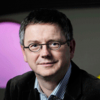 Prof. Mark van den Brand started his study computer science in 1982 at the Radboud University Nijmegen (The Netherlands). In 1987 he became a PhD student at the Radboud University Nijmegen. In 1992 he started as assistent professor in the Programming Research Group at the University of Amsterdam. In 1997 he switched from University of Amsterdam to CWI (Centrum voor Wiskunde en Informatica) and became senior researcher and project leader on the ASF+SDF project. The ASF+SDF project is one of the main research topics of the Interactive Software Development and Renovation group. Since 2006 Mark van den Brand is a full professor of Software Engineering and Technology at TU/e in the Department of Mathematics and Computer Science. Since May 2009 he is visiting professor at Royal Holloway, University of London.
His current research activities are on generic language technology, and model driven engineering. A number of his research topics are to investigate the correctness and quality aspects of model transformations, and the use of meta-modeling techniques in the area of functional safety. The SET group participates/participated a number of (industrial) projects related to model driven engineering and software evolution. The goal of his research is to investigate the correctness and quality aspects of model transformations.
He is president of the European Association of Programming Languages and Systems (EAPLS) and chair of the steering committee of Software Language Engineering. He was six times guest editor of special issues of Science of Computer Programming on academic software development (Experimental Software and Toolkits (EST)). He is member of the editorial board of the journal of Science of Computer Programming, Central European Journal for Computer Science, and Journal of Computer Languages, Systems and Structures.
Prof. Mark van den Brand started his study computer science in 1982 at the Radboud University Nijmegen (The Netherlands). In 1987 he became a PhD student at the Radboud University Nijmegen. In 1992 he started as assistent professor in the Programming Research Group at the University of Amsterdam. In 1997 he switched from University of Amsterdam to CWI (Centrum voor Wiskunde en Informatica) and became senior researcher and project leader on the ASF+SDF project. The ASF+SDF project is one of the main research topics of the Interactive Software Development and Renovation group. Since 2006 Mark van den Brand is a full professor of Software Engineering and Technology at TU/e in the Department of Mathematics and Computer Science. Since May 2009 he is visiting professor at Royal Holloway, University of London.
His current research activities are on generic language technology, and model driven engineering. A number of his research topics are to investigate the correctness and quality aspects of model transformations, and the use of meta-modeling techniques in the area of functional safety. The SET group participates/participated a number of (industrial) projects related to model driven engineering and software evolution. The goal of his research is to investigate the correctness and quality aspects of model transformations.
He is president of the European Association of Programming Languages and Systems (EAPLS) and chair of the steering committee of Software Language Engineering. He was six times guest editor of special issues of Science of Computer Programming on academic software development (Experimental Software and Toolkits (EST)). He is member of the editorial board of the journal of Science of Computer Programming, Central European Journal for Computer Science, and Journal of Computer Languages, Systems and Structures.
Wil van der Aalst, Eindhoven University of Technology
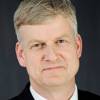 Prof. Wil van der Aalst is a full professor of Information Systems at the Technische Universiteit Eindhoven (TU/e). At TU/e he is the scientific director of the Data Science Center Eindhoven (DSC/e). Since 2003 he holds a part-time position at Queensland University of Technology (QUT). His personal research interests include workflow management, process mining, Petri nets, business process management, process modeling, and process analysis. Wil van der Aalst has published more than 180 journal papers, 18 books (as author or editor), 400 refereed conference/workshop publications, and 60 book chapters. Many of his papers are highly cited (he one of the most cited computer scientists in the world and has an H-index of 122 according to Google Scholar) and his ideas have influenced researchers, software developers, and standardization committees working on process support. He has been a co-chair of many conferences including the Business Process Management conference, the International Conference on Cooperative Information Systems, the International conference on the Application and Theory of Petri Nets, and the IEEE International Conference on Services Computing. He is also editor/member of the editorial board of several journals, including Computing, Distributed and Parallel Databases, Software and Systems Modeling, the International Journal of Business Process Integration and Management, the International Journal on Enterprise Modelling and Information Systems Architectures, Computers in Industry, Business & Information Systems Engineering, IEEE Transactions on Services Computing, Lecture Notes in Business Information Processing, and Transactions on Petri Nets and Other Models of Concurrency. In 2012, he received the degree of doctor honoris causa from Hasselt University in Belgium. He served as scientific director of the International Laboratory of Process-Aware Information Systems of the National Research University, Higher School of Economics in Moscow. In 2013, he was appointed as Distinguished University Professor of TU/e and was awarded an honorary guest professorship at Tsinghua University. In 2015, he was appointed as honorary professor at the National Research University, Higher School of Economics in Moscow. He is also a member of the Royal Netherlands Academy of Arts and Sciences (Koninklijke Nederlandse Akademie van Wetenschappen), Royal Holland Society of Sciences and Humanities (Koninklijke Hollandsche Maatschappij der Wetenschappen) and the Academy of Europe (Academia Europaea).
Prof. Wil van der Aalst is a full professor of Information Systems at the Technische Universiteit Eindhoven (TU/e). At TU/e he is the scientific director of the Data Science Center Eindhoven (DSC/e). Since 2003 he holds a part-time position at Queensland University of Technology (QUT). His personal research interests include workflow management, process mining, Petri nets, business process management, process modeling, and process analysis. Wil van der Aalst has published more than 180 journal papers, 18 books (as author or editor), 400 refereed conference/workshop publications, and 60 book chapters. Many of his papers are highly cited (he one of the most cited computer scientists in the world and has an H-index of 122 according to Google Scholar) and his ideas have influenced researchers, software developers, and standardization committees working on process support. He has been a co-chair of many conferences including the Business Process Management conference, the International Conference on Cooperative Information Systems, the International conference on the Application and Theory of Petri Nets, and the IEEE International Conference on Services Computing. He is also editor/member of the editorial board of several journals, including Computing, Distributed and Parallel Databases, Software and Systems Modeling, the International Journal of Business Process Integration and Management, the International Journal on Enterprise Modelling and Information Systems Architectures, Computers in Industry, Business & Information Systems Engineering, IEEE Transactions on Services Computing, Lecture Notes in Business Information Processing, and Transactions on Petri Nets and Other Models of Concurrency. In 2012, he received the degree of doctor honoris causa from Hasselt University in Belgium. He served as scientific director of the International Laboratory of Process-Aware Information Systems of the National Research University, Higher School of Economics in Moscow. In 2013, he was appointed as Distinguished University Professor of TU/e and was awarded an honorary guest professorship at Tsinghua University. In 2015, he was appointed as honorary professor at the National Research University, Higher School of Economics in Moscow. He is also a member of the Royal Netherlands Academy of Arts and Sciences (Koninklijke Nederlandse Akademie van Wetenschappen), Royal Holland Society of Sciences and Humanities (Koninklijke Hollandsche Maatschappij der Wetenschappen) and the Academy of Europe (Academia Europaea).
Arie van Deursen, Delft University of Technology
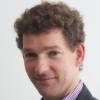 Prof. Arie van Deursen is a full professor at Delft University of Technology, where he is heading the Software Engineering Research Group. arie's research is concerned with the question how people build and evolve software systems, what the problems are with existing software systems, and whether there are better ways of doing software development and evolution. Arie has published in the areas of software testing, software architecture, web 2.0 (and Ajax in particular), aspect-oriented programming, reverse engineering, repository mining, program comprehension, and model-driven engineering. Arie is on the editorial board of Springer's Empirical Software Engineering, Springer's Computing, and of Wiley's Journal of Software Maintenance and Evolution: Research and Practice. He also serves as a steering committee member of the International Conference on Software Maintenance (ICSM).
Prof. Arie van Deursen is a full professor at Delft University of Technology, where he is heading the Software Engineering Research Group. arie's research is concerned with the question how people build and evolve software systems, what the problems are with existing software systems, and whether there are better ways of doing software development and evolution. Arie has published in the areas of software testing, software architecture, web 2.0 (and Ajax in particular), aspect-oriented programming, reverse engineering, repository mining, program comprehension, and model-driven engineering. Arie is on the editorial board of Springer's Empirical Software Engineering, Springer's Computing, and of Wiley's Journal of Software Maintenance and Evolution: Research and Practice. He also serves as a steering committee member of the International Conference on Software Maintenance (ICSM).
Jaco van de Pol, University of Twente
 Prof. Jaco van de Pol is a full professor at University of Twente, where he is heading the Formal Methods and Tools group. His research interest include modeling and analysis of safety, dependability and security aspects of software-intensive embedded systems by means of model checking, theorem proving and testing. More specifically, the development of new model checking techniques based on symbolic techniques (e.g. abstraction, confluence, fixpoint equation systems, constraint solving) and high-performance computing (e.g. distributed model checking, multi-core and out-of-core algorithms). Application domains include embedded systems, distributed systems, security protocols, and biological systems.
Prof. Jaco van de Pol is a full professor at University of Twente, where he is heading the Formal Methods and Tools group. His research interest include modeling and analysis of safety, dependability and security aspects of software-intensive embedded systems by means of model checking, theorem proving and testing. More specifically, the development of new model checking techniques based on symbolic techniques (e.g. abstraction, confluence, fixpoint equation systems, constraint solving) and high-performance computing (e.g. distributed model checking, multi-core and out-of-core algorithms). Application domains include embedded systems, distributed systems, security protocols, and biological systems.
Zekeriya Erkin, Delft University of Technology
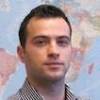 Dr. Zekeriya Erkin is an assistant professor in the Cyber Security Group, where he works on Privacy Enhancing Technologies. His main research goal is to protect private data in online applications against misuse. One way to achieve this goal is to hide the private data by means of encryption in such a way that without the authorization of the data owner, no one can see the content but still process the encrypted data for the required service. One simple example is to encrypt an image and ask the service provider if there is a face image of a suspect. Since the image is encrypted, there is no way of saying for the service provider. However, it is possible to determine this by running interactive, cryptographic protocols based on Homomorphic Encryption and Secure Multiparty Computation techniques.
Dr. Zekeriya Erkin is an assistant professor in the Cyber Security Group, where he works on Privacy Enhancing Technologies. His main research goal is to protect private data in online applications against misuse. One way to achieve this goal is to hide the private data by means of encryption in such a way that without the authorization of the data owner, no one can see the content but still process the encrypted data for the required service. One simple example is to encrypt an image and ask the service provider if there is a face image of a suspect. Since the image is encrypted, there is no way of saying for the service provider. However, it is possible to determine this by running interactive, cryptographic protocols based on Homomorphic Encryption and Secure Multiparty Computation techniques.
Jack van Wijk, Eindhoven University of Technology
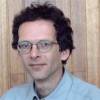 Prof. Jack van Wijk is a full professor in visualization at the Department of Mathematics and Computer Science of Eindhoven University of Technology (TU/e).
He received a MSc degree in industrial design engineering in 1982 and a PhD degree in computer science in 1986, both from Delft University of Technology, both with honors. After a short period in the software industry, he has worked for ten years at the Netherlands Energy Research Foundation ECN. He joined Eindhoven University of Technology in 1998, where he became a full professor of visualization in 2001. His main research interests are information visualization, visual analytics, and mathematical visualization. He is cofounder and VP Scientific Affairs of MagnaView BV.
He has (co-)authored more than 150 papers in visualization and computer graphics. He has been paper cochair for IEEE Visualization (2003, 2004), IEEE InfoVis (2006, 2007), IEEE VAST 2009, IEEE PacificVis 2010 and EG/IEEE EuroVis 2011. He received the IEEE Visualization Technical Achievement Award in 2007 for his work on flow visualization; the Eurographics 2013 Outstanding Technical Contributions Award; best paper awards at IEEE InfoVis 2003, IEEE Visualization 2005, IEEE PacificVis 2013, IEEE InfoVis 2014; IEEE VAST 2015, and the 2009 Henry Johns Award of The Cartographic Journal. He was keynote, capstone, or invited speaker at PacificVis 2009, EuroVAST 2010, GD 2011, VMV 2011, i-KNOW 2011, Bridges 2013, IEEE VISSOFT 2013, IEEE VIS 2013 (video), and VAHC 2015.
Prof. Jack van Wijk is a full professor in visualization at the Department of Mathematics and Computer Science of Eindhoven University of Technology (TU/e).
He received a MSc degree in industrial design engineering in 1982 and a PhD degree in computer science in 1986, both from Delft University of Technology, both with honors. After a short period in the software industry, he has worked for ten years at the Netherlands Energy Research Foundation ECN. He joined Eindhoven University of Technology in 1998, where he became a full professor of visualization in 2001. His main research interests are information visualization, visual analytics, and mathematical visualization. He is cofounder and VP Scientific Affairs of MagnaView BV.
He has (co-)authored more than 150 papers in visualization and computer graphics. He has been paper cochair for IEEE Visualization (2003, 2004), IEEE InfoVis (2006, 2007), IEEE VAST 2009, IEEE PacificVis 2010 and EG/IEEE EuroVis 2011. He received the IEEE Visualization Technical Achievement Award in 2007 for his work on flow visualization; the Eurographics 2013 Outstanding Technical Contributions Award; best paper awards at IEEE InfoVis 2003, IEEE Visualization 2005, IEEE PacificVis 2013, IEEE InfoVis 2014; IEEE VAST 2015, and the 2009 Henry Johns Award of The Cartographic Journal. He was keynote, capstone, or invited speaker at PacificVis 2009, EuroVAST 2010, GD 2011, VMV 2011, i-KNOW 2011, Bridges 2013, IEEE VISSOFT 2013, IEEE VIS 2013 (video), and VAHC 2015.
Marieke Huisman, University of Twente
 Prof. Marieke Huisman is a professor in the FMT (Formal Methods and Tools) Group at the University of Twente working on reliability and correctness of concurrent and distributed software. She is the winner of the Dutch ICT award 2013. She hqs a strong track record on analysis of concurrent software. In her ERC project VerCors, she developed tools for static analysis of concurrent programs, using different concurrency paradigms (shared memory, but also vector programs).
Prof. Marieke Huisman is a professor in the FMT (Formal Methods and Tools) Group at the University of Twente working on reliability and correctness of concurrent and distributed software. She is the winner of the Dutch ICT award 2013. She hqs a strong track record on analysis of concurrent software. In her ERC project VerCors, she developed tools for static analysis of concurrent programs, using different concurrency paradigms (shared memory, but also vector programs).
